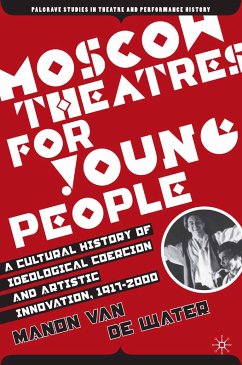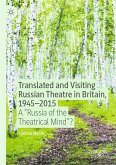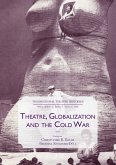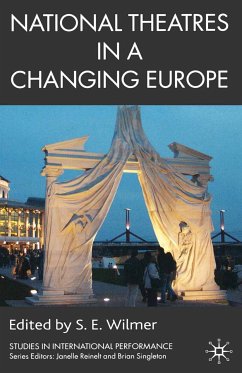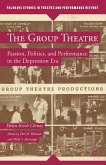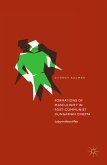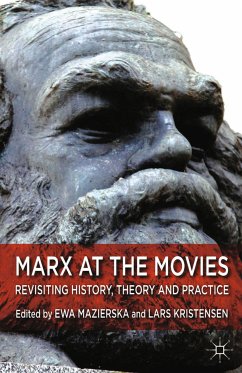Dieser Download kann aus rechtlichen Gründen nur mit Rechnungsadresse in A, B, BG, CY, CZ, D, DK, EW, E, FIN, F, GR, HR, H, IRL, I, LT, L, LR, M, NL, PL, P, R, S, SLO, SK ausgeliefert werden.
'For anyone fascinated by 20th century Russian theatre, in all its contradictions and its struggles to reflect, or sometimes avoid, the social upheavals around it,this book on Russian theatre for children and young people will be required reading. From the 1917 Revolution onwards, Moscow and Leningrad pioneered the creation of theatres for youth that could play a pivotal role in the emergence of a new national identity, acquired real artistic and political status, and in so doing offered models followed by many other countries. But the very state support envied by so many elsewhere was at the same time its Achilles heel. Manon van de Water's meticulously researched study charts the historical developments and the ideological and artistic stresses and strains encountered by these theatres as they struggled for decades to fulfil the state's ideological goals, swerved from agit-prop to classic fairy tales as the climate required, experimented with style as and when they could, and later had to face the challenge of Perestroika and the rapid changes brought about by the collapse of communism and the arrival of 'market forces'. Her focus upon the work of two of the major Moscow theatres for youth, each responding to the changes in decidedly different ways provides a valuable insight not only into the workings of two significant theatres but into aspects of cultural life in Moscow more generally.' - Tony Jackson, Senior Lecturer in Drama and Director, Centre for Applied Theatre Research, Manchester University

